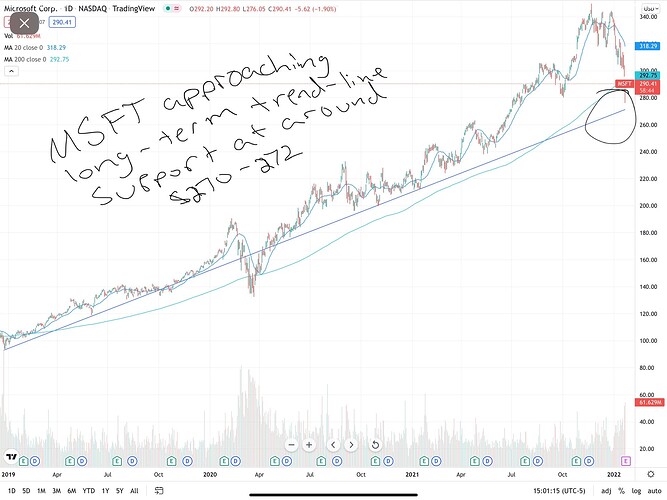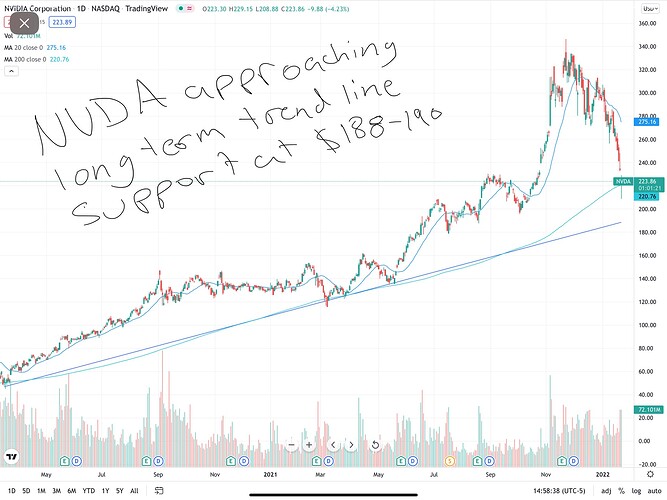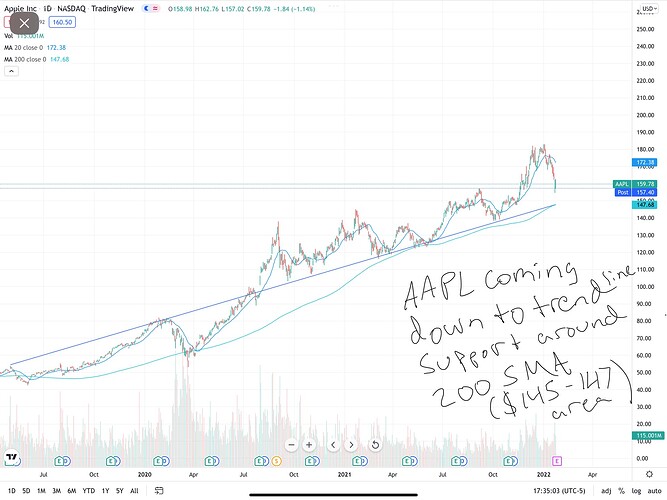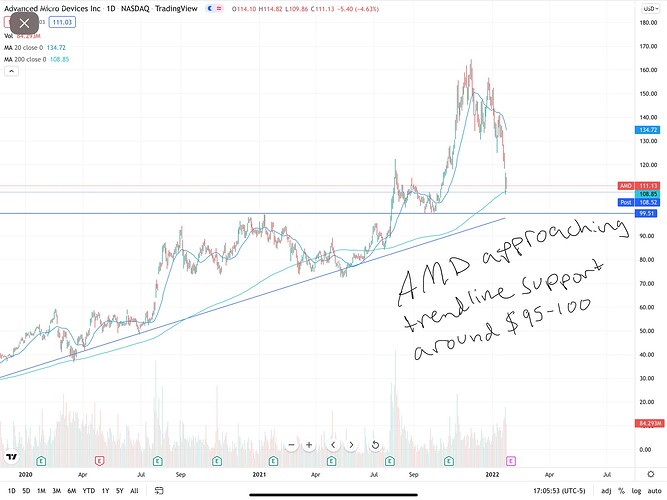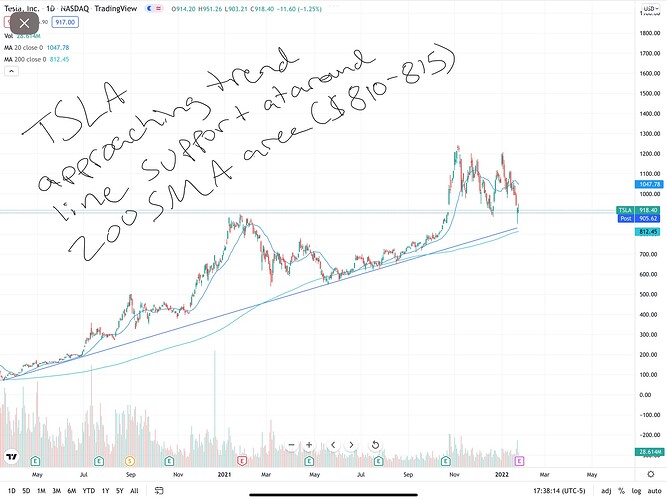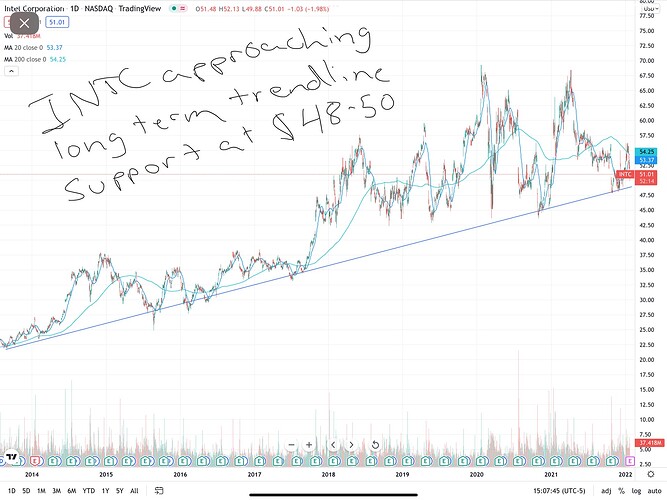Rate hikes will raise the cost of borrowing money. That means stocks that are still in their growing phases will most likely grow at a lesser rate (example: some of ARK’s holdings). Not only this, but companies that have and rely on substantial amounts of debt, this includes some large caps, will take a hit sometime in the future. Valuations will be scrutinized because of this. How much are people willing to pay for future earnings? How will future earnings be impacted in the first place? Credit companies that rely on interest payments from consumers that don’t make their payments on time will also likely take a hit. Interest rates were low before so consumers didn’t mind spending more than they could afford and paying it off later, now not so much.
Liquidity will be reduced from the market. Margin debt was very high recently, not surprising due to the low rates and WSB boys yoloing tsla fd’s on full margin on Robinhood. Once rates are hiked, margin debt will be substantially decreased due to higher borrowing costs.
Here you can read about updated margin debt numbers.
Tapering, a way to raise rates, will also happen soon. Bond purchasing will be tapered, rising the coupon rates of bonds. This will take some more liquidity out of the markets from organizations like pension funds that need to keep up with payments and rising inflation, but couldn’t stick their money in bonds due to the low rates. I don’t think a couple rate hikes and bond tapering will fix macro conditions by themselves. Labor markets are shrinking, supply chains are still struggling because of this, inflation is nearing/at 30-year highs. I think it’ll take a lot more than what we’re expecting from the fed to fix the impact macro took from COVID.
What can you do? Hedging is an option. You can scale into longterm QQQ puts (tech will be one of the most affected from rising rates) on rally days. Scale into positions in solid companies with pricing power when it comes to high inflation, some examples would be consumer defensive stocks like PG or energy stocks like XOM or even in solid mega-caps like MSFT. Start looking at opportunities in the banks. Rising rates will help their bottom line due to higher borrowing costs. You can read more about that here. You can also look for value in international markets like Japan, for example.
I don’t think the volatility will be over after today, or after Q1 for that matter. Here are some examples of popular tech stocks and what could happen if they correct to trend:
MSFT:
NVDA:
AAPL:
AMD:
TSLA:
INTC:
Scalping is my way to go, but for those looking to invest for the future, you might want to rethink before buying the dip on growth stocks until you can see their earnings and can see what direction the market wants after Q1 when rate hikes will start coming. This isn’t meant as FUD, this is meant to keep the conversation honest and present both sides of the coin.
Good luck!!!
